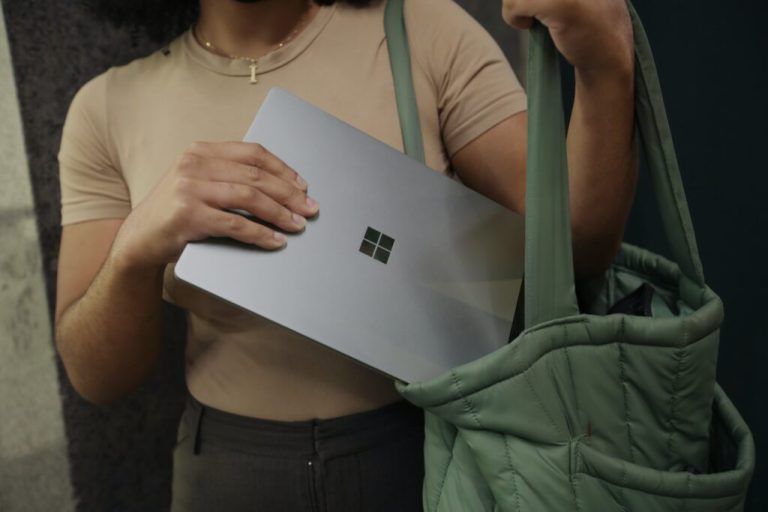The Dark Side of Music Streaming: How AI and Bot Farms Exploit Indie Artists and Fuel Fraud
Currently, a significant struggle is unfolding in the music industry regarding the exploitation of streaming services, with unsuspecting indie artists caught in the crossfire. Fraudsters are inundating platforms like Spotify and Apple Music with AI-generated tracks in an attempt to capitalize on the royalties earned from streaming. These artificially created tracks are quick, inexpensive, and easy to produce. According to Deezer, over 20,000 fully AI-generated tracks—accounting for 18% of new uploads—are being added to its platform daily, nearly doubling the figures reported in January. These perpetrators often resort to bots, AI, or even human listeners to continuously play these fraudulent songs to generate revenue. Additionally, some are manipulating upload services to associate fake tracks with legitimate artists, siphoning off royalties in this manner.
In response, Spotify penalizes the most egregious offenders and claims to invest significant resources in detecting and removing artificial streaming activity. Meanwhile, Apple Music asserts that less than 1% of its streams are manipulated. Although this may seem reassuring, in a global streaming market valued at $20.4 billion—according to IFPI—it’s highly probable that rogue operators are siphoning hundreds of millions in revenue each year.
The core issue lies in the fact that while it’s become significantly easier for musicians to upload their content to streaming platforms—eliminating the burdens associated with producing CDs or vinyl—the same ease applies to fraudsters. The industry is embroiled in a battle against deceit, but the automated detection systems can sometimes mistakenly penalize innocent artists who have done nothing wrong.
Darren Owen, the Chief Operating Officer of music distribution company Fuga, notes that streaming fraud began to escalate around 2021 and currently occupies 50% of his work. Fuga employs AI and machine learning to assign a “severity score” to streaming patterns, distinguishing between organic and non-human activities. “You won’t have the same song streaming at the same time across multiple devices,” Owen pointed out, adding that countries such as India, Vietnam, and parts of Eastern Europe are hotspots for click-farming operations involving low-wage workers. “It’s become evident that organized crime syndicates are also involved,” he stated.
Record industry trade groups are targeting services that offer artificially inflated streams, like pimpyourfollower.de in Germany, which was recently taken offline due to a court order. Universal Music Group, the largest record label, has faced accusations from Drake concerning manipulating streams to boost Kendrick Lamar’s diss track, an allegation that UMG has firmly denied.
Many artists have shared their experiences with these systems, finding themselves unjustly implicated in a war against manipulation. Darren Hemmings, managing director of music marketing company Motive Unknown, had a track suddenly spike in plays from “a few a day” to over 1,000 due to growing popularity, but his distributor flagged it as tampering. “While I understand their conclusion, the process feels ineffectively punitive,” he remarked, noting the challenges of proving innocence in such cases.
The Northern Irish rock band Final Thirteen faced a similar situation when their music was removed from streaming services after a sharp increase in plays, which they suspect was linked to a feature on Radio 1. The drummer, Doobes, explained, “It’s exceptionally difficult for artists to prove they weren’t involved in manipulation, and even harder for platforms like Spotify to ascertain it.”
Indie artist Adam J Morgan, known as Naked & Baked, encountered a similar issue when a track that gained over 10,000 streams, possibly due to a TikTok viral moment, was removed by RouteNote due to suspicion of manipulation. “I hadn’t done anything wrong, yet they offered no evidence,” he expressed, feeling that RouteNote’s actions were overly cautious. “I spent a lot of time trying to resolve the issue, but Spotify claimed no flags had been placed on my music.” RouteNote did not provide a comment after a request for an interview.
These takedowns lead to significant inconvenience for musicians, hindering marketing efforts and incurring costs. Matthew Whiteside, artistic director of the experimental classical event The Night With… and head of the TNW Music label, had multiple albums removed under claims of artificial streaming. He traced the problem back to manipulated playlists that his music was mistakenly added to. “It was baffling why they were included based on their genre,” he described. His distributor offered a resubmission option for $40 per album but added no guarantee against further removals.
Whiteside reflected on the nature of streaming, stating, “The system inherently disadvantages smaller and niche acts. If I achieve 1,000 streams a month, I would feel quite satisfied.” Thus, the cost of resubmitting an album often exceeds budgets set for releases.
Deezer is claiming to be the first streaming service to establish fraud detection mechanisms. Thibault Roucou, the company’s royalties and reporting director, elaborated, “We analyze a variety of indicators to determine whether a user is fraudulent or not. When we initiate a takedown, we closely examine the situation and are very confident that it is a case of extreme manipulation.” Unfortunately, takedown procedures across various services often assume guilt, with cumbersome appeal processes that can leave struggling artists feeling powerless.
Levina, a pop singer who represented Germany at Eurovision in 2017, experienced this firsthand when her music was taken down without notice due to sharing a name with another artist. “Navigating the appeals process with streaming platforms is nearly impossible,” she laments. “You can submit a form, but it feels like you’re left with no real options.” As chair of the artist council within the Featured Artists Coalition, she is advocating for minimum standards that distributors should follow. She has proposed a warning system that allows artists the opportunity to address and rectify any issues before any drastic actions are taken.
Both streaming services and distributors have acknowledged that this conflict centers around containment rather than a complete eradication of the issue. Owen conveyed that the latest tactics involve fraudsters incrementally boosting multiple tracks rather than inflating the play counts of a few significantly, allowing them to avoid detection systems.
Hemmings foresees the potential for a two-tier streaming economy, where smaller artists may opt to forgo mainstream platforms in favor of alternatives like Bandcamp, especially given the dismally low earnings from existing streaming services. “This could push many independent musicians to conclude that other avenues for generating income are more viable,” he noted.






